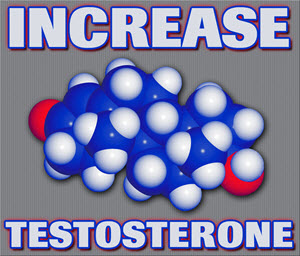Impotence, clinically known as erectile dysfunction (ED), is a condition that affects millions of American men, often leading to significant emotional and psychological distress. However, recent advancements in medical science are offering new hope and more effective treatments, promising a brighter future for those affected.
Understanding Impotence
Impotence is the inability to achieve or maintain an erection sufficient for satisfactory sexual performance. It can stem from various causes, including psychological factors like stress and anxiety, physical conditions such as diabetes and heart disease, and lifestyle factors like smoking and excessive alcohol consumption. The impact of impotence extends beyond physical limitations, often affecting self-esteem and relationships.
Innovative Diagnostic Techniques
The first step in addressing impotence is accurate diagnosis. Recent developments in diagnostic technology have enhanced our ability to pinpoint the root causes of ED. Advanced imaging techniques, such as penile Doppler ultrasound, allow physicians to assess blood flow in the penis, identifying vascular issues that may contribute to impotence. Additionally, comprehensive blood tests can detect underlying health conditions that might be contributing factors.
Breakthroughs in Treatment Options
The landscape of impotence treatment has evolved significantly, moving beyond traditional oral medications like Viagra and Levitra. One of the most promising advancements is the development of low-intensity extracorporeal shockwave therapy (Li-ESWT). This non-invasive treatment uses acoustic waves to improve blood flow and stimulate the growth of new blood vessels in the penis, offering a potential cure for ED rather than just a temporary solution.
Another innovative approach is the use of platelet-rich plasma (PRP) therapy. This treatment involves injecting a patient's own concentrated platelets into the penis to promote tissue regeneration and enhance erectile function. Early studies have shown promising results, with many patients experiencing significant improvements in their ability to achieve and maintain erections.
The Role of Lifestyle Modifications
While medical interventions are crucial, lifestyle modifications play a vital role in managing and potentially reversing impotence. Regular exercise, a balanced diet, and smoking cessation can significantly improve overall health and sexual function. Recent research has highlighted the benefits of pelvic floor exercises, which can strengthen the muscles involved in erections and improve sexual performance.
Psychological Support and Counseling
The psychological impact of impotence cannot be overstated. Many men experience feelings of inadequacy and depression, which can exacerbate the condition. Advances in psychological therapies, such as cognitive-behavioral therapy (CBT), have proven effective in helping men cope with the emotional aspects of ED. Integrating psychological support with medical treatment can lead to better outcomes and improved quality of life.
The Future of Impotence Treatment
Looking ahead, the future of impotence treatment appears promising. Ongoing research into gene therapy and stem cell treatments holds the potential to revolutionize how we approach ED. These cutting-edge therapies aim to repair damaged tissues and restore normal erectile function, offering hope for a permanent solution to impotence.
Conclusion
The advancements in the treatment of impotence are transforming the lives of American men, offering new hope and more effective solutions. From innovative diagnostic techniques to breakthrough therapies like Li-ESWT and PRP, the medical community is making significant strides in addressing this common yet often misunderstood condition. By combining these medical advancements with lifestyle changes and psychological support, men with impotence can look forward to a brighter, more fulfilling future.
Contact Us Today For A Free Consultation

- Innovations in Impotence Treatment: A New Era for American Males' Sexual Health [Last Updated On: February 23rd, 2025] [Originally Added On: February 23rd, 2025]
- Dissecting the Hushed Truth: Comprehensive Grasp on the Facets of Impotence [Last Updated On: February 25th, 2025] [Originally Added On: February 25th, 2025]
- Unveiling the Frontiers of Male Sexual Health: Advanced Therapies for Erectile Dysfunction [Last Updated On: February 26th, 2025] [Originally Added On: February 26th, 2025]
- Unveiling Masculine Strength: Finding the Path from Powerless to Potent [Last Updated On: February 26th, 2025] [Originally Added On: February 26th, 2025]
- Unveiling Silent Torment: Navigating the Path of Impotence [Last Updated On: February 27th, 2025] [Originally Added On: February 27th, 2025]
- Understanding Impotence: A Deep Dive into the Science of Desire [Last Updated On: February 28th, 2025] [Originally Added On: February 28th, 2025]
- Subverting Traditions: Reinventing Masculinity Beyond the Shadow of Impotence [Last Updated On: February 28th, 2025] [Originally Added On: February 28th, 2025]
- Disentangling Misconceptions and Unveiling the Truth about Erectile Dysfunction [Last Updated On: March 1st, 2025] [Originally Added On: March 1st, 2025]
- Revolutionizing Impotence Management: A Deep Dive into Alternative Therapies for American Males [Last Updated On: March 1st, 2025] [Originally Added On: March 1st, 2025]
- The Undeniable Link: Sexuality and Men's Mental Health [Last Updated On: March 2nd, 2025] [Originally Added On: March 2nd, 2025]
- Understanding Erectile Dysfunction: Causes, Stigma, and Advanced Treatment Options [Last Updated On: March 3rd, 2025] [Originally Added On: March 3rd, 2025]
- Linking Erectile Dysfunction to Cardiovascular Health Risks [Last Updated On: March 4th, 2025] [Originally Added On: March 4th, 2025]
- Understanding Testosterone's Role in Male Sexual Health and Impotence Management [Last Updated On: March 5th, 2025] [Originally Added On: March 5th, 2025]
- Exploring the Impact of Stress and Anxiety on Erectile Dysfunction in Men [Last Updated On: March 6th, 2025] [Originally Added On: March 6th, 2025]
- Understanding and Addressing Erectile Dysfunction's Impact on Relationships: A Comprehensive Guide [Last Updated On: March 7th, 2025] [Originally Added On: March 7th, 2025]
- Comprehensive Guide to Male Impotence: Causes, Treatments, and Success Stories [Last Updated On: March 8th, 2025] [Originally Added On: March 8th, 2025]
- Impotence: Psychological, Relational, and Medical Insights for Men and Partners [Last Updated On: March 9th, 2025] [Originally Added On: March 9th, 2025]
- Understanding and Overcoming Impotence: A Comprehensive Guide for American Males [Last Updated On: March 12th, 2025] [Originally Added On: March 12th, 2025]
- Revitalizing Masculine Vigor: A Comprehensive Guide to Overcoming Impotence Through Lifestyle Changes [Last Updated On: March 13th, 2025] [Originally Added On: March 13th, 2025]
- Navigating Emotional Recovery: The Impact of Counseling on Impotence in American Men [Last Updated On: March 15th, 2025] [Originally Added On: March 15th, 2025]
- Understanding and Overcoming Impotence: A Guide to Rebuilding Intimacy and Sexual Health [Last Updated On: March 17th, 2025] [Originally Added On: March 17th, 2025]
- Impotence and Aging: Understanding and Managing ED in American Males [Last Updated On: March 18th, 2025] [Originally Added On: March 18th, 2025]
- Impotence in American Males: Diagnosis, Treatment, and Emotional Support Strategies [Last Updated On: March 18th, 2025] [Originally Added On: March 18th, 2025]
- Impotence to Triumph: Men's Stories of Overcoming Erectile Dysfunction [Last Updated On: March 18th, 2025] [Originally Added On: March 18th, 2025]
- Understanding Impotence: Causes, Treatments, and Importance of Male Sexual Health [Last Updated On: March 18th, 2025] [Originally Added On: March 18th, 2025]
- Impotence: Economic and Emotional Impacts on American Men's Well-being [Last Updated On: March 19th, 2025] [Originally Added On: March 19th, 2025]
- Impotence: Understanding, Treating, and Overcoming Stigma in American Men [Last Updated On: March 19th, 2025] [Originally Added On: March 19th, 2025]
- Telemedicine Revolutionizes Impotence Care for American Men: Benefits, Challenges, and Future [Last Updated On: March 19th, 2025] [Originally Added On: March 19th, 2025]
- Medication-Induced Impotence: Causes, Mechanisms, and Solutions for American Men [Last Updated On: March 20th, 2025] [Originally Added On: March 20th, 2025]
- Harnessing Positivity to Combat Impotence: A Mental Health Perspective [Last Updated On: March 21st, 2025] [Originally Added On: March 21st, 2025]
- Natural Aphrodisiacs: Exploring Their Role in Managing Impotence in American Men [Last Updated On: March 21st, 2025] [Originally Added On: March 21st, 2025]
- Restorative Sleep: A Key to Enhancing Sexual Health in American Men [Last Updated On: March 22nd, 2025] [Originally Added On: March 22nd, 2025]
- Diabetes and Erectile Dysfunction: Prevalence, Mechanisms, and Management Strategies in American Men [Last Updated On: March 22nd, 2025] [Originally Added On: March 22nd, 2025]
- Overcoming Impotence: Understanding Causes, Treatments, and Emotional Impact [Last Updated On: March 22nd, 2025] [Originally Added On: March 22nd, 2025]
- Global Cultural Perspectives on Impotence and Sexual Health: A Comprehensive Overview [Last Updated On: March 23rd, 2025] [Originally Added On: March 23rd, 2025]
- Strategies for American Men to Overcome Impotence and Enhance Seduction [Last Updated On: March 23rd, 2025] [Originally Added On: March 23rd, 2025]
- Innovative Gadgets and Techniques Revolutionizing ED Treatment [Last Updated On: March 23rd, 2025] [Originally Added On: March 23rd, 2025]
- Psychological Approaches to Combat Impotence in American Men: Mind-Body Connection [Last Updated On: March 23rd, 2025] [Originally Added On: March 23rd, 2025]
- Impotence in American Men: Understanding, Overcoming, and Redefining Sexual Health [Last Updated On: March 23rd, 2025] [Originally Added On: March 23rd, 2025]
- Work Stress and Impotence: Understanding and Managing the Connection in American Men [Last Updated On: March 24th, 2025] [Originally Added On: March 24th, 2025]
- From Ancient Remedies to Modern Advances: Treating Impotence in American Men [Last Updated On: March 24th, 2025] [Originally Added On: March 24th, 2025]
- Impotence and Endocrine Disorders: Insights and Guidance for American Men [Last Updated On: March 24th, 2025] [Originally Added On: March 24th, 2025]
- Navigating Insurance Coverage for Impotence: A Comprehensive Guide for American Males [Last Updated On: March 24th, 2025] [Originally Added On: March 24th, 2025]
- Obesity, Diet, and Impotence: A Comprehensive Guide for American Males [Last Updated On: March 24th, 2025] [Originally Added On: March 24th, 2025]
- Lifestyle Choices Impacting Male Sexual Health: Diet, Exercise, and More [Last Updated On: March 24th, 2025] [Originally Added On: March 24th, 2025]
- Erectile Dysfunction: Causes, Emerging Research, and Innovative Treatments in the U.S. [Last Updated On: March 25th, 2025] [Originally Added On: March 25th, 2025]
- Impotence in American Males: Understanding Impacts and Pathways to Renewed Intimacy [Last Updated On: March 25th, 2025] [Originally Added On: March 25th, 2025]
- Counseling Strategies to Rebuild Self-Esteem in Men with Impotence [Last Updated On: March 25th, 2025] [Originally Added On: March 25th, 2025]
- Breaking the Taboo: Understanding and Addressing Erectile Dysfunction in American Men [Last Updated On: March 25th, 2025] [Originally Added On: March 25th, 2025]
- PDE5 Inhibitors: Revolutionizing ED Treatment and Enhancing Quality of Life [Last Updated On: March 25th, 2025] [Originally Added On: March 25th, 2025]
- Navigating the Emotional Impact of Impotence: Strategies for American Men [Last Updated On: March 25th, 2025] [Originally Added On: March 25th, 2025]
- Exercise: A Vital Strategy for Managing Impotence in American Males [Last Updated On: March 25th, 2025] [Originally Added On: March 25th, 2025]
- Debunking Impotence Myths: Understanding and Treating Erectile Dysfunction in American Men [Last Updated On: March 26th, 2025] [Originally Added On: March 26th, 2025]
- Acupuncture as a Complementary Treatment for Impotence in American Males [Last Updated On: March 26th, 2025] [Originally Added On: March 26th, 2025]
- Exploring Injection and Device Therapies for Impotence: Beyond Oral Medications [Last Updated On: March 26th, 2025] [Originally Added On: March 26th, 2025]
- Understanding Impotence: Anatomy, Causes, and Effective Management Strategies [Last Updated On: March 26th, 2025] [Originally Added On: March 26th, 2025]
- Physical Therapy Enhances Sexual Health, Treats Impotence in American Males [Last Updated On: March 26th, 2025] [Originally Added On: March 26th, 2025]
- Impotence: Unveiling Emotional, Financial Burdens and Seeking Solutions for American Men [Last Updated On: March 26th, 2025] [Originally Added On: March 26th, 2025]
- Supporting Partners Through Impotence: A Guide to Understanding and Recovery [Last Updated On: March 27th, 2025] [Originally Added On: March 27th, 2025]
- Essential Nutrients for Combating Impotence in American Men [Last Updated On: March 27th, 2025] [Originally Added On: March 27th, 2025]
- Overcoming Impotence: A Holistic Approach to Men's Sexual Wellness [Last Updated On: March 27th, 2025] [Originally Added On: March 27th, 2025]
- Exploring Secondary Causes of Impotence Beyond Medication in American Males [Last Updated On: March 28th, 2025] [Originally Added On: March 28th, 2025]
- Smoking, Alcohol, and Impotence: Impacts and Strategies for American Men [Last Updated On: March 28th, 2025] [Originally Added On: March 28th, 2025]
- Impotence: Navigating Psychological Impacts and Enhancing Intimate Relationships in American Males [Last Updated On: March 29th, 2025] [Originally Added On: March 29th, 2025]
- Chronic Stress and Impotence: Understanding Links and Managing Effects [Last Updated On: March 29th, 2025] [Originally Added On: March 29th, 2025]
- Understanding Impotence: Biochemical, Hormonal, and Psychological Factors in American Males [Last Updated On: March 29th, 2025] [Originally Added On: March 29th, 2025]
- Mindfulness and Meditation: Effective Strategies for Managing Impotence in American Men [Last Updated On: March 29th, 2025] [Originally Added On: March 29th, 2025]
- Overcoming Impotence: American Men's Journeys to Sexual Health and Confidence [Last Updated On: March 30th, 2025] [Originally Added On: March 30th, 2025]
- Impotence, Depression, and Anxiety: Integrated Treatment Approaches for American Men [Last Updated On: March 30th, 2025] [Originally Added On: March 30th, 2025]
- Impotence: Redefining Masculinity and Addressing Social Impact in America [Last Updated On: March 31st, 2025] [Originally Added On: March 31st, 2025]
- Innovative Technologies Revolutionizing Erectile Dysfunction Treatment and Management [Last Updated On: March 31st, 2025] [Originally Added On: March 31st, 2025]
- Prostate Health and Impotence: A Comprehensive Guide for American Men [Last Updated On: April 2nd, 2025] [Originally Added On: April 2nd, 2025]
- Impotence: Understanding ED's Impact on Relationships and Masculinity in American Men [Last Updated On: April 2nd, 2025] [Originally Added On: April 2nd, 2025]
- Future of Impotence Treatment: Innovations and Personalized Approaches [Last Updated On: April 3rd, 2025] [Originally Added On: April 3rd, 2025]
- Surgical Options for Impotence: Types, Procedures, and Recovery Insights [Last Updated On: April 3rd, 2025] [Originally Added On: April 3rd, 2025]
- Environmental Toxins and Male Impotence: Understanding Risks and Mitigation Strategies [Last Updated On: April 6th, 2025] [Originally Added On: April 6th, 2025]
- Breaking the Silence: Strategies for American Men to Discuss Impotence [Last Updated On: April 8th, 2025] [Originally Added On: April 8th, 2025]
- Lifestyle Hacks to Combat Impotence in American Men: Diet, Exercise, and More [Last Updated On: April 8th, 2025] [Originally Added On: April 8th, 2025]
- Innovative Drug Therapies Revolutionizing Impotence Treatment in American Men [Last Updated On: April 9th, 2025] [Originally Added On: April 9th, 2025]
- Holistic Self-Care Strategies for American Men to Overcome Impotence [Last Updated On: April 9th, 2025] [Originally Added On: April 9th, 2025]
Word Count: 539





















